Indigenous Governance Database
tribal codes
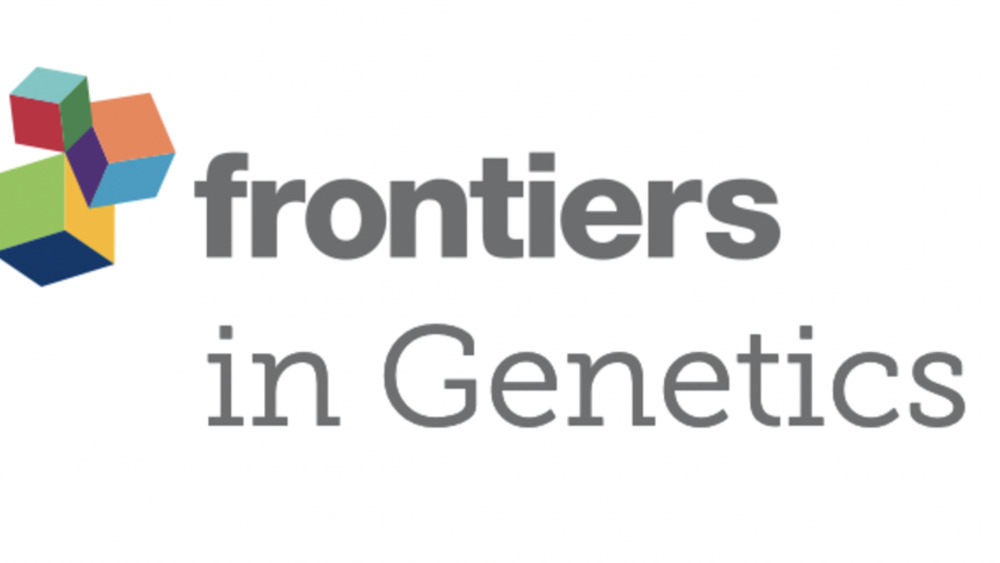
Using Indigenous Standards to Implement the CARE Principles: Setting Expectations through Tribal Research Codes
Biomedical data are now organized in large-scale databases allowing researchers worldwide to access and utilize the data for new projects. As new technologies generate even larger amounts of data, data governance and data management are becoming pressing challenges. The FAIR principles (Findable,…
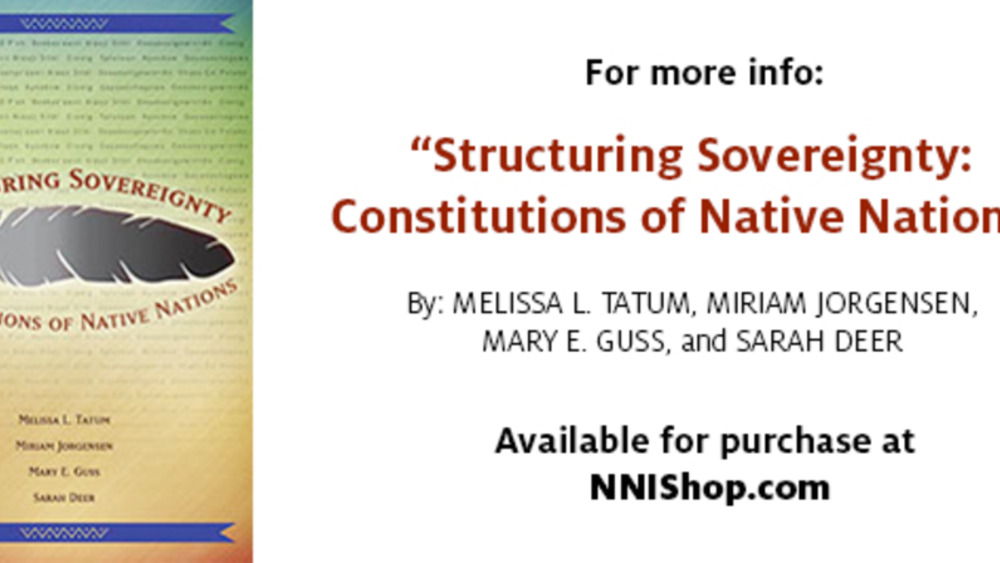
Abenaki Nation of Missisquoi Constitution
The Abenaki Nation of Missisquoi is spread across New England in the U.S. and the Quebec and Maritimes regions in Canada. It has a population of 12,000 and it is not recognized by the U.S. Government. The nation's constitution was enacted in 2002. The Abenaki People of the St. Francis/Sokoki Band…
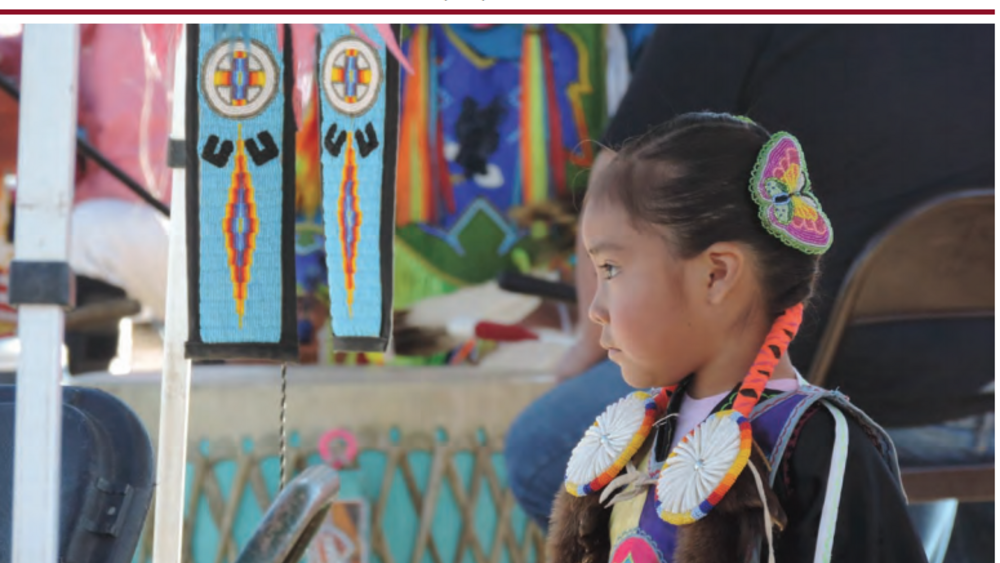
Tribal Child Welfare Codes as Sovereignty in Action. 2016 NICWA conference edition
With passage of the Indian Child Welfare Act of 1978 (ICWA), Congress formally recognized Native nations’ inherent authority to govern child welfare matters and provided support for tribal self-determination over child welfare. Because ICWA “assumes that a tribal code is the governance mechanism by…
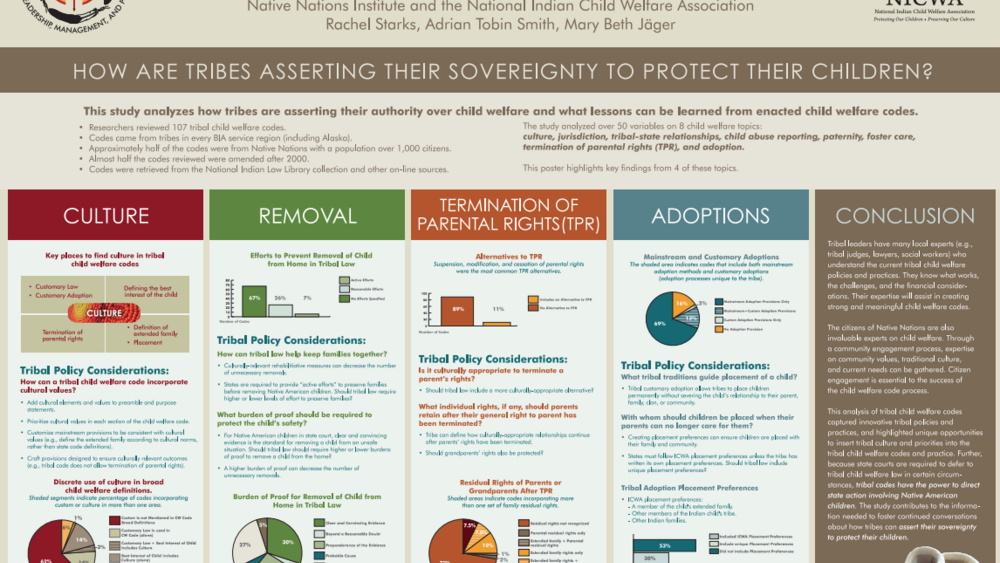
Protecting Our Children: A Review of 100+ Tribal Welfare Codes
NNI researchers Mary Beth Jäger (Citizen Potawatomi), Rachel Starks (Zuni/Navajo), and National Indian Child Welfare Association governmental affairs staff attorney, Adrian Smith shared the results of an ongoing study on culture, removal, termination of parental rights, and adoption in tribal child…
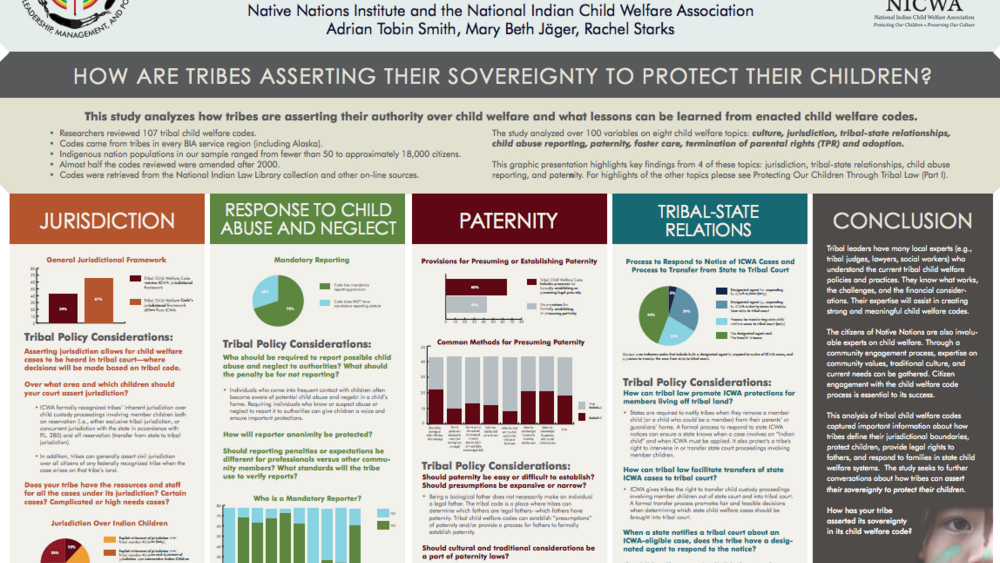
Protecting Our Children Through Tribal Law: Part II
This graphic presentation highlights key findings from 4 of these topics: jurisdiction, tribal-state relationships, child abuse reporting, and paternity. For highlights of the other topics please see Protecting Our Children Through Tribal Law (Part I).
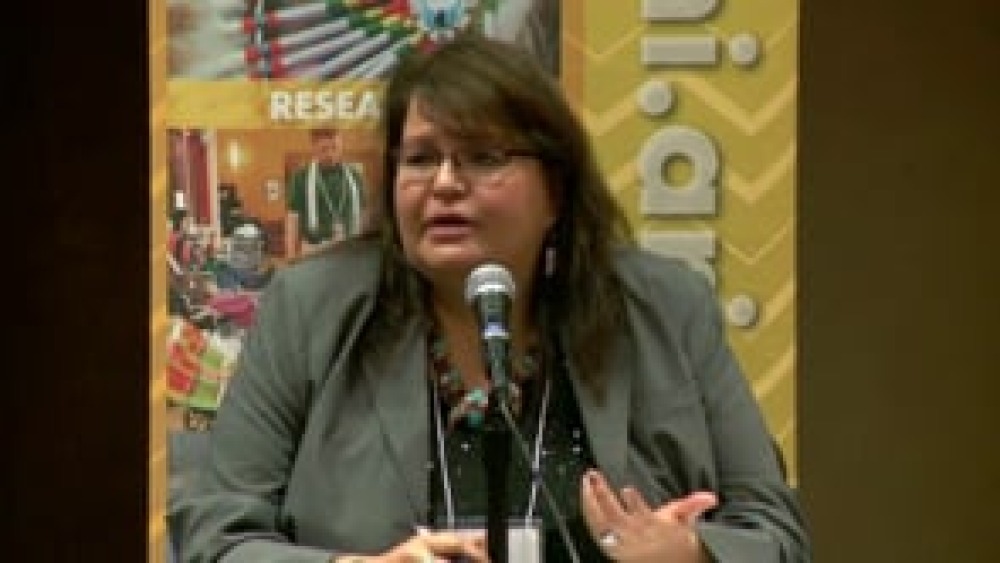
Eldena Bear Don't Walk: So What's So Important about Tribal Courts?
Eldena Bear Don't Walk, Chief Justice of the Confederated Salish and Kootenai Tribes, discusses some of the things that tribal justice systems need to have in place in order to be effective, and how important it is for Native nation governments and citizens to respect and support the decisions…
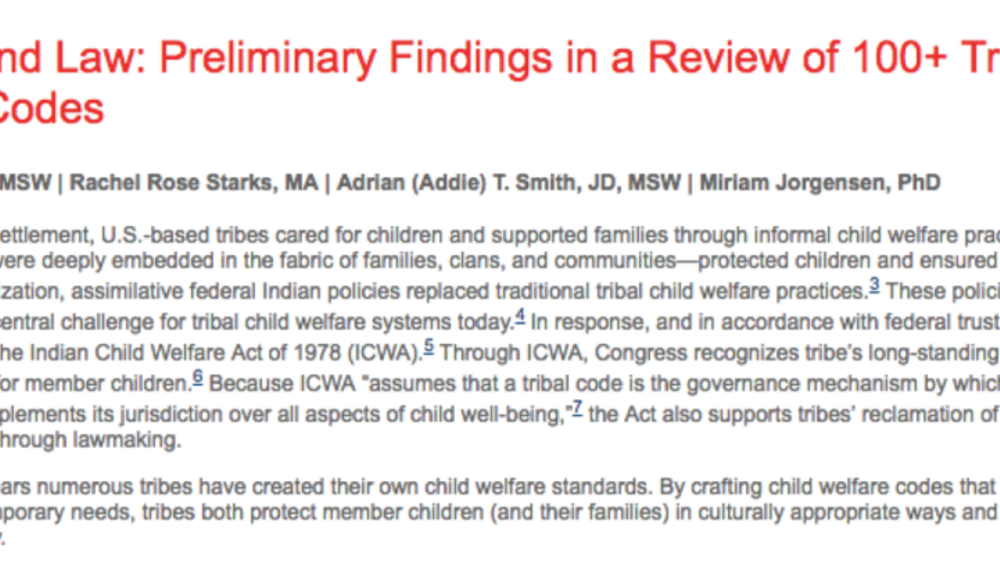
Culture and Law: Preliminary Findings in a Review of 100+ Tribal Welfare Codes
Over the last 35 years numerous tribes have created their own child welfare standards. By crafting child welfare codes that balance traditional culture and contemporary needs, tribes both protect member children (and their families) in culturally appropriate ways and reaffirm their sovereign…
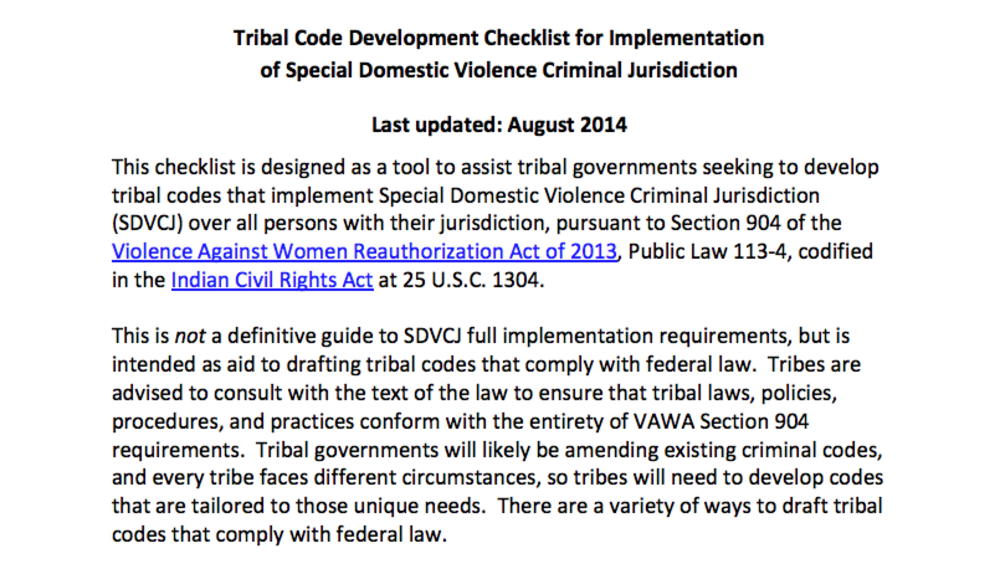
Tribal Code Development Checklist for Implementation of Special Domestic Violence Criminal Jurisdiction
This checklist (click to download) is designed as a tool to assist tribal governments seeking to develop tribal codes that implement special domestic violence criminal jurisdiction (SDVCJ) under section 904 of VAWA 2013. Tribal governments will likely be amending existing criminal codes, and every…
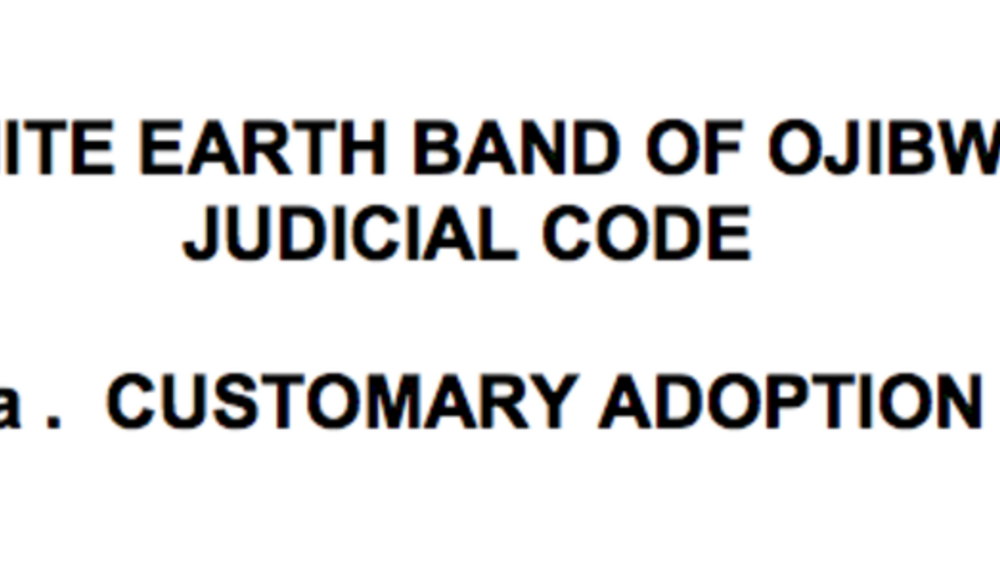
Customary Adoption Code, White Earth Band of Ojibwe
This code, developed by the White Earth Band of Ojibwe, allows adoption on the reservation for children but in a way that promotes cultural growth and support.
